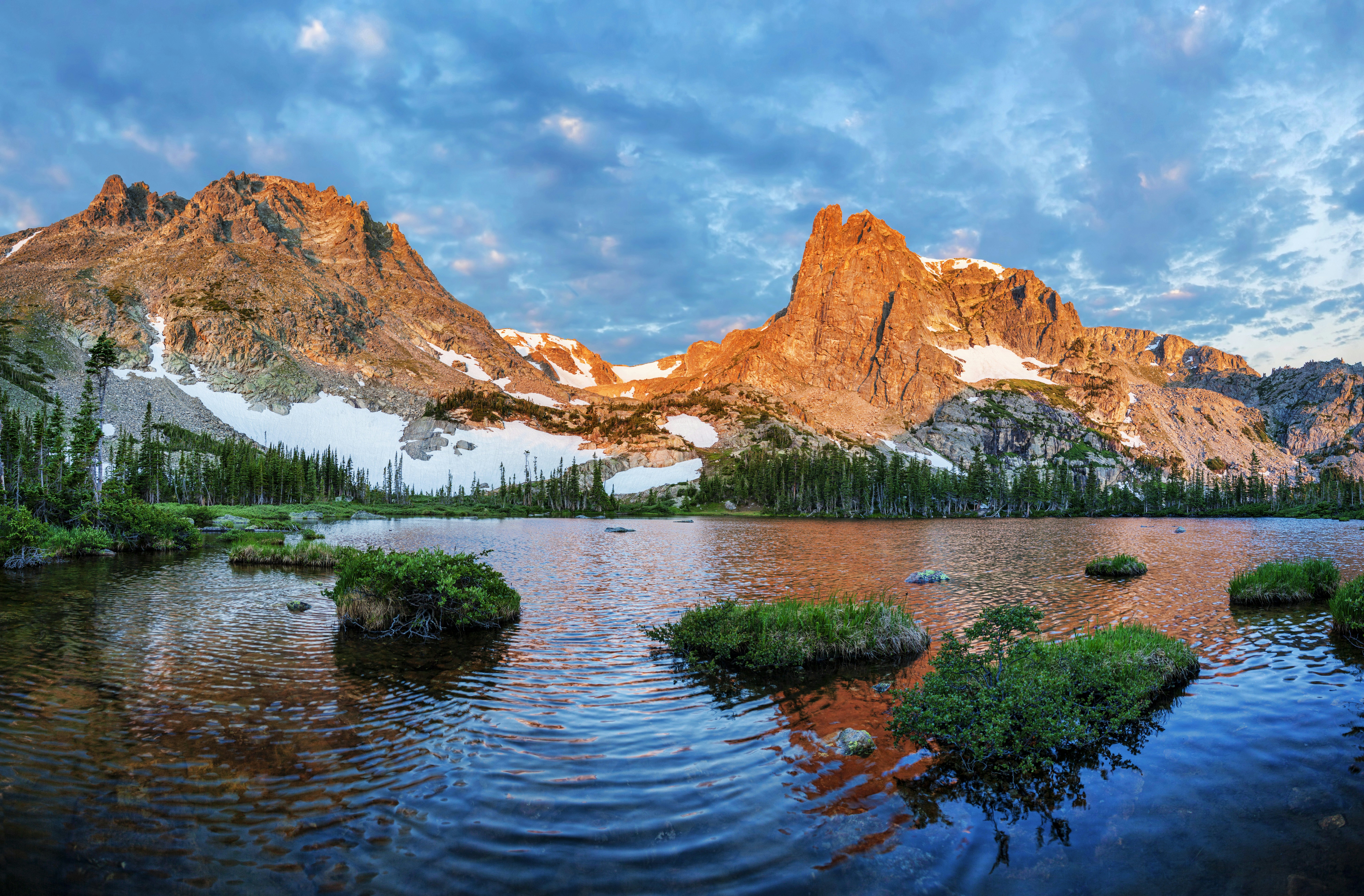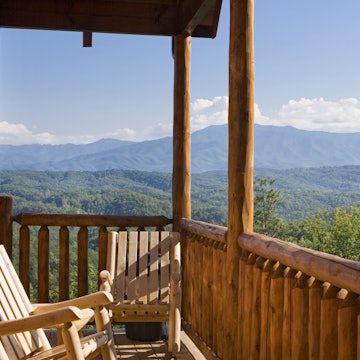

Gorgeous walking country in Rocky Mountains National Park © Shutterstock / Margaret.Wiktor
Lace up your hiking boots and get ready to hit the trails! The vast wilderness of Rocky Mountain National Park is a natural playground for fans of all things adventurous. There are gentle loops to lakes for families and summit hikes for rugged explorers, with plenty of mid-level waterfall walks in between for day-trippers.
The terrain in Rocky Mountain National Park is vital and elemental. Pine forest cloaks the lower elevations, giving way to windswept tundra that provides a unique ecosystem for hundreds of species of wildflowers. Above, sculpted peaks silhouetted against the blue sky serve as a dramatic reminder of the last ice age.
It’s a big place, so to help you find your way, here are some of the best hikes in Rocky Mountain National Park.
Editor's note: during COVID-19 there may be additional travel restrictions. Check the latest guidance in Rocky Mountain National Park before planning a trip, and always follow local government health advice.

Bear Lake Loop
Best easy hike
0.5 miles round trip, 20 minutes, easy
Bear Lake is one of the park’s most popular destinations for first-time visitors, with good reason. On this trail, you’ll have front-row seats for a view of the dramatic glacial valleys and hulking granite summits that make the Rocky Mountains such a singular landscape. The Bear Lake Loop is a short and easy hike that's perfect for families or people with limited mobility. There are 30 waymarkers along the route – hike counterclockwise to follow the curated route. With 10 lakes in the area and superb vistas, you can expect large crowds in season.
Several longer and more strenuous paths set off from the Bear Lake trailhead or nearby Glacier Gorge trailhead, including hikes to Alberta Falls (1.8 miles round trip), Mills Lake (5.6 miles) and the Loch (6.2 miles), which can be extended to the exquisite Lake of Glass and Sky Pond (9.8 miles) – as serene as their names suggest. While Flattop Mountain (12,324ft, 8.8 miles) may not be the park’s best summit, there’s no denying its magnetic pull from down below. Use the park shuttles to get to the trailhead.

Bear Lake to Fern Lake via Lake Helene
Best hike for lake views
9.2 miles, 5 hours, moderate
This day hike is a ranger favorite and is known for its diverse scenery. You'll climb up to the treeline and an alpine lake before dropping back down through fields of scree into a forested valley. Here you’ll pass more lakes, waterfalls, aspen groves and elk-inhabited meadows. You can’t miss Lake Helene, which sits serenely beneath the imposing, rough-cut cliffs of Notchtop and Flattop mountains.
Thanks to the park shuttle system, this is a one-way trip that requires no backtracking – and what’s more, it’s mostly downhill! To do this hike, park at Fern Lake Trailhead (the endpoint), and then take the shuttle to Bear Lake Trailhead. You can also shorten the trip by simply going to Lake Helene and back (4.8 miles).
Longs Peak and Chasm Lake
Best hike for tackling a Colorado 14er
15 miles round trip, 10 to 15 hours, very strenuous
Iconic in every way, Longs Peak is the pinnacle of Rocky Mountain National Park and one of Colorado’s classic climbs. The tallest peak in the park (14,259ft), Longs Peak can be summited on the exhilarating and exhausting Keyhole Route, which features on many visitors' to-do lists. The top of this route is the crux, consisting of narrow traverses, vertiginous cliff faces and heart-pounding clambering up polished slabs of rock. Most people start the climb by 3am to reach the summit before noon.
The good news is that you don’t have to reach the summit or turn your legs to jelly. Chasm Lake, located at the foot of the Diamond – Longs Peak's legendary east face where technical climbers rope up to scale the 1000ft wall – is routinely rated as one of the park’s best hikes. Chasm Lake features all the spectacular scenery of the peak without the risk and arduous ascent. However, at 8.4 miles round trip, you’ll still need to be in good shape.
Gem Lake
Best hike for active families
3.6 miles round trip, 2 hours, moderate
At the northeastern end of Rocky Mountain National Park is Lumpy Ridge, composed of 1.8-billion-year-old granite formations that were sculpted by the elements rather than by glaciers. This markedly different style of erosion has resulted in an array of whimsically shaped boulders, balancing rocks and colossal domes. The trail to Gem Lake is a great way to explore the area, with superb vistas back to the Continental Divide all the way up to the jewel-like lake. Kids love the abundant scrambling opportunities in this area (as do rock climbers), making this a good family hike. While relatively short, the elevation gain will keep you puffing.

Mount Ida
Best hike for sweeping views and challenging ascents
10 miles round trip, 6 hours, strenuous
One of the easier peaks to access along the Continental Divide, Mount Ida (12,880ft) is a choice spot to enjoy a prolonged top-of-the-world feeling and monumental views in all directions. Perhaps because it is on the western side of the park, Mount Ida is a relatively unknown summit and an excellent place to escape the crowds on the Trail Ridge Road. Indeed, most of the drivers across the valley will be craning their necks in admiration of the ridge you’re about to ascend.
Mount Ida is a relatively gradual ascent, following the Continental Divide Trail past miniature alpine wildflowers (whose roots extend 6 feet below ground) all the way to the summit. The last stretch is a clamber through boulder fields and past a few false peaks. But the reward is soon to come, with a sheer drop-off on the eastern side of the ridge that looks down upon a string of icy-blue alpine lakes.
Tips for hiking in Rocky Mountain National Park
Rocky Mountain hikes are best done from mid-June to mid-October. Be prepared for snow and ice at other times of year.
Get an early start – dawn if possible – as this will not only improve your chances of spotting wildlife, but also ensure you get a coveted parking spot and are out of the high country by noon, when summer storms often roll in.
Don’t underestimate the altitude, especially if you’re coming from sea level. Give yourself time to acclimatize and bring sunscreen, sunglasses, a hat, ibuprofen, and a windbreaker and fleece. Staying hydrated is crucial.
The park has six developed campsites. The best camping options, however, are in the backcountry, where you’ll find more than 200 sites and greater seclusion. Hiking from Wild Basin Trailhead to Ouzel Falls and then Bluebird or Thunder Lake makes for an unforgettable backpacking trip.
You may also like:
Gaze at the stars in Colorado's incredible new dark sky park
How to spend your first visit to Yosemite National Park
Introducing Colorado's National Parks
This article was originally written in 2019 and updated in 2021













